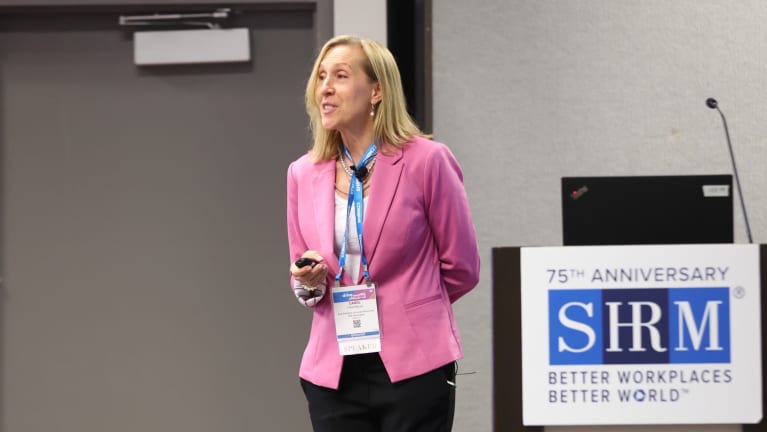The emergence of artificial intelligence, particularly in the form of AI chatbots like ChatGPT, is causing HR professionals to contemplate its impact on their organizations and careers. While it appears that AI won’t replace many HR professionals, those who embrace and utilize AI, including ChatGPT, are likely to replace those who do not.
ChatGPT can be a Valuable Tool
HR professionals recognize that ChatGPT can be a valuable tool to enhance their knowledge, agility, and influence within their organizations. By leveraging ChatGPT, HR practitioners can position themselves as thought leaders and contribute more effectively to strategic discussions.
AI offers Various Benefits to HR Professionals
ChatGPT, alongside other generative AI chatbots like Google’s Bard and Microsoft’s Bing AI, offers various benefits for HR professionals. It can assist with tasks such as writing job descriptions, identifying vendors, and conducting compensation research. Its rapid adoption rate highlights its potential, with one million users engaging with ChatGPT within the first five days of its launch.
Nevertheless, it is crucial for HR professionals to be aware of the limitations and potential drawbacks of ChatGPT. As an AI model that generates content by scraping the internet, it may produce responses containing errors. Additionally, it does not provide the source of the information it generates. HR practitioners must exercise caution when using ChatGPT, customizing the results to their specific organization and carefully vetting for accuracy and legal compliance.
Several HR professionals shared their experiences with integrating ChatGPT into their workflows. For instance, Jeffrey Harrington, from the Alliance for Workforce Development, uses ChatGPT extensively for tasks ranging from drafting emails to creating training programs. He emphasizes the importance of customization and discernment, cautioning against blindly accepting the output and stressing the need to weed out incorrect or legally risky information.
ChatGPT Inevitable for HR Professionals
Amanda Abbott Knox, an HR leader at Accumen Inc., considers ChatGPT as the inevitable next step for HR. She highlights the need for HR professionals to educate their leadership teams about AI and its potential, helping them understand and appreciate the technology. While some leaders may be skeptical, Knox believes that exploring and experimenting with AI is essential to foster comfort and identify its value within an organization. She acknowledges the need for setting guidelines to ensure responsible usage of AI technologies like ChatGPT.
Patrick Sterling, HR director at Seprod, emphasizes the need for HR professionals to embrace and gain knowledge about AI to leverage its benefits. Recognizing the potential impact on employees, he raises concerns about managing the transition and supporting individuals through the change process.
Conclusion
While AI chatbots like ChatGPT won’t replace HR professionals, embracing and utilizing these technologies can enhance HR practitioners’ effectiveness and elevate their roles within organizations. By exercising caution, customization, and verification, HR professionals can leverage the benefits of AI while ensuring accuracy, compliance, and ethical usage. Managing the transition and supporting employees through change will be crucial as AI continues to shape the future of work.
FAQ
Q1: What is ChatGPT and how can it benefit HR professionals?
A1: ChatGPT is an AI chatbot that can assist HR professionals in various tasks such as writing job descriptions, conducting research, and providing insights for strategic discussions. It enhances HR professionals’ knowledge, agility, and influence within their organizations.
Q2: Can ChatGPT replace HR professionals?
A2: No, ChatGPT and similar AI chatbots are unlikely to replace HR professionals entirely. Instead, they can enhance their effectiveness and elevate their roles within organizations by providing valuable support and streamlining certain tasks.
Q3: What are the limitations of ChatGPT?
A3: ChatGPT generates content by scraping the internet, which can lead to errors, and it does not provide the source of the information it generates. HR professionals must exercise caution, customize the results, and verify the accuracy of the information before using it.
Q4: How can HR professionals integrate ChatGPT into their workflows?
A4: HR professionals can integrate ChatGPT by customizing its output to suit their organization’s specific needs. They should exercise discernment and critically evaluate the generated information, while also ensuring legal compliance and accuracy.
Q5: What should HR professionals consider when adopting AI chatbots like ChatGPT?
A5: HR professionals should consider the need for education and communication to help their leadership teams understand and appreciate the potential of AI technologies. Guidelines should be established to ensure responsible usage, and support should be provided to employees during the transition to AI-driven processes.






5 thoughts on “Empowering HR Professionals”